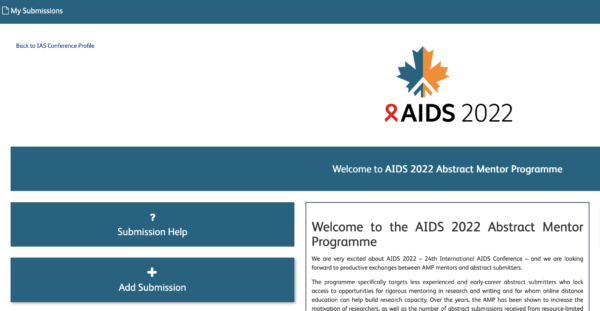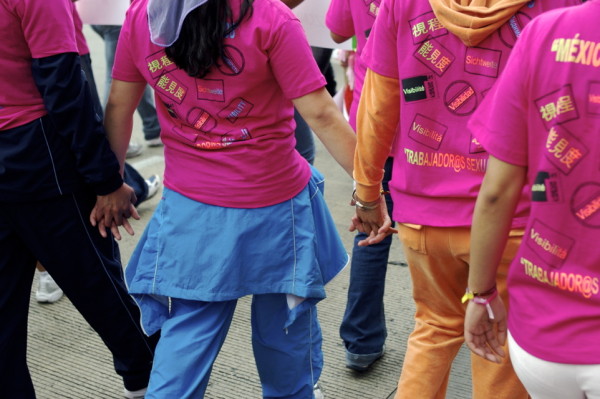Sex worker “focused” is not sex worker-led (20 Dec 2021)
We are writing this open letter in defense of all sex workers and in the spirit of finding solutions to long-standing dynamics in the HIV/AIDS sector globally that have led to the marginalization of the leadership of sex workers who are most affected and impacted. Please sign on here to future actions.
On December 16, 2021, without any discussion, communication or connecting of campaigns, AIDS United, Sex Workers Project (SWP), Reframing Health and Justice and the Postive Women’s Network (PWN), based their letter campaign and “movement-building” on policy work done by a coalition of sex worker-led organizations. See also, this statement by AIDS United on December 17.
We are aware that our organizing and policy work in HIV and AIDS forums is carefully done, based on more than 30 years of experience and is held in high regard. It makes sense that other groups would want to build upon our groundbreaking work.
We want to be clear about what has occurred so close to the International Day to End Violence Against Sex Workers. This is not about building on the work of others to strengthen sex workers’ voices (which, of course, we do support), this is blatant theft. The organizing and social capital of our work on HIV/AIDS policy and justice are being taken by privileged groups with unlimited access to resources who were in no way involved and with no consultation. And, this has been done by groups that gatekeep funding, have millions of dollars, and use respectability politics surrounding sex work.
We want to be very clear that while we are highlighting a specific instance we are not surprised that our work and organizing has been appropriated. The astro-turfing of work done by sex workers is something that happens frequently. This letter is not only about documenting what happened to us. We hope it serves as an example to other communities of sex workers that have had this happen to them already and for future sex worker rights organizers. This coalition presents a question for all to consider: Who will be at the table for furthering sex worker HIV policies? This question presents a bigger issue on who gets chosen to sit at the table that we built? For these mentioned groups to have a hand in policy-making and not include this coalition disregards our roles as leaders. This should give all in the sector pause.
Adding our organizational links to the letter is not recognition. It portrays sex workers as coming into this policy work when we are clearly leaders in this fight. Our organizations specifically mentioned in our NHAS open letter (one of the links used), that our rights and principles would no longer allow “advocates” to speak for us, but yet, this appropriation of our work clearly shows that our demands were not honored. Every one of the mentioned organizations has leadership that knows there is no greater offense than grifting work off marginalized populations.
In the spirit of solutions we list the following remedies. AIDS United, SWP, PWN and Reframe Health and Justice must take down the letter/form, publicly apologize and support the work of grassroots organizations that did this work unfunded when the issues were not yet accepted. We are here waiting for your call so you can make this right and we look forward to working with you. Additionally, each organization involved in this must change their internal policies so something like this can never happen again. Each organization should pay the sex workers most impacted by these issues to advise them on how to make these changes. Our leaders and organizers have put their lives on the line for this work without payment for decades. If funding has been obtained by the intellectual and written appropriation of our work, then our groups’ deserve compensation. Monetary compensation is very important to our organizations as it literally allows our survival to sustain the work we do towards human rights for all. We refuse to allow more privileged groups and non-sex workers take from us now because they suspect that sex worker rights has become a popular issue and catching funders and donors attention.
For people and organizations who are not closely associated with this work, you may wonder why we didn’t try to handle this internally. The answer is we have tried without success and now after this incident, we will not hold secrets when the community of sex workers and trans-led organizations continue to suffer from erasure, astroturfing, and appropriation. We tried to get AIDS United to return our messages for years–almost a decade–after we observed numerous policy missteps and erasures. We made countless efforts to connect with AIDS United as sex worker leaders and Black trans leaders. We even had AIDS United staffers speak to policy directors on our behalf to no avail. Other organizations involved in this action, such as Reframe Health and Justice, have repeatedly been advised privately to stop taking the work of grassroots organizations as their own. And, we have all of these years of reaching out documented in our archives; We have the receipts.
Our work is our work and we must be acknowledged as such. UN UPR Recommendation 86 is also the work of sex worker-led groups. The legwork of organizing sex workers representing in Geneva for the 2010, 2015, and 2020 Universal Periodic Review was done by sex workers.
Our roots in this work go very deep and it is an affront to every organization listed here that the seminal work of Black trans leader Sharmus Outlaw is also being taken without acknowledgement. It is foundational in whorephobia and transphobia to erase us from our own history. In 2011, many years into her advocacy, Sharmus addressed the Global Dialogue on HIV/AIDS and shared our joint policy agenda. She was also a central part in globally organizing, presenting, and participating in the many IAS conferences. This work cannot be erased.
Sincerely,
BPPP
Desiree Alliance
The BSWC
NJRUA
The Outlaw Project


